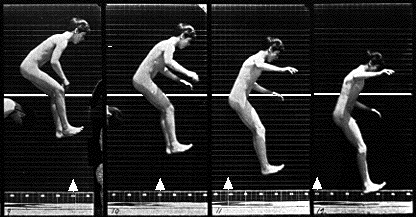Some topics discussed:
We started off by looking at the form of the form- If the form of the message can be conceived of as a part of the discourse we partake in, then what are the social, historical, anthropological, and biological conditions in which they were formulated and what effect do they have, including being gendered forms themselves?
We looked at the Quiz format utilized by Kate Borstein in "The Gender Workshop," and what it might mean to create/use an interactive theory workbook that plays with the teen magazine format. We got a common framework for discussing this format by looking at/filling out quizzes from Cosmopolitan, Seventeen, and Men's Fitness (in breakout groups and then all together).
We discussed Audre Lorde's concept of "The master's tools will never dismantle the master's house," asking "Is it effective to use the quiz/personality test format, even ironically, to encourage deconstruction of categories and mechanisms of construction?"
some ideas/concepts we came up with:
-Borstein's Quiz as adapted to people who normally would be excluded from most quiz categories, not being the target market. Perhaps reversing isn't the answer, but a part of the process? A 1st step for everyone (for Gender Outlaws to be included in a conventional format, and for man/woman identified people to question their assumptions.)
-Women and Men's Magazine Quizzes often assumed a privileged status of the reader- prepared for heterosexual, binary gender comfortable youth with expendable income and minimal social concerns except how to get into the mind of or seduce the "opposite sex."
- Myers-Briggs personality tests, SAT tests- What/who are they designed for, for what function, usefulness? Who is excluded and from what? Do they really depict us and our changing senses of selves?
-History of the personality test (german jewish refugee post WWII designed to screen/address the characteristics that designate a person capable of being complicit in genocide, later used against the designer's will by the Nixon administration to screen cabinet members, aids, and currently employed as tools in the hiring process to screen for emotional and identity "abnormalities," and thievery-potential, especially by corporations.
-For more history of the personality test check out: http://www.thislife.org/Radio_Episode.aspx?episode=231 [1]
-Why do we look to a test to expose ourselves to ourselves? Why do people want to be told what they are?
-Can you play with the tension/construct of the label wile creating new labels? This is a question that was brought up with Scott on Tuesday Gymnasium as well...
-Potential quiz we could create: "Are You Valid as a Person?" Options: 1-5 pts: You're TOO valid- a TV show personality character should be typed after you/which you've typed after a TV personality; 6-11 pts: You're NORMAL and play with the little amount of creative identity space you're allowed (super-sexed to frigid, competitive to push-over etc); 12-17 pts: ABJECTED! Non-person status...illegal But without you, the concept of the Normal couldn't exist (Butler)
We read three texts that work in different ways. What are their forms and functions? Who is their audience? Who would be excluded from their format? If we are constantly constructed and constructing identitity, what do they say about the nature of the subject and the agency we have to affect change?
Butler- post-structuralist therory, looks at the cellular (body matter) level on a conceptual level- the historical, philosophically gender/sex-inscribed, non-blank-slate conception of the matter that bodies are made up of.
Fausto-Sterling- feminist, historic, referential, scholarly narrative scientific writing; for popular audience with academic leanings, she writes to an informed audience but argues against specialization...Developmental System Theory, Mobius strip/Russian nesting doll visual, no one medium of inquiry is sufficient to tell us something so complex, actually looks at the body at the cellular and behavioral level as a biologist with systems approach
Bornstein- girlish teen/women magazine article/quiz format; fun and engaging to varying degrees for different people, might reinscribe fixed notions of identity and hand us back the problem by assuming that certain types of identity correlate with certain types of people, useful for putting theory into action at the individual level
-DST: new hybrid disciplines emerging out of separate fields/analysis on multiple levels
-dissolves the nature/nurture binary.
- is a possible alternative discourse, another way to frame the questions we ask and conceive of answers, with this idea in mind: "sexuality is a somatic fact created by a cultural effect" (Fausto-Sterling 21).
-Constructs DO exist because they have been created and affect people's existence
-Why categorize? What does Science/Reason have to do with the modern reductionist/non-systems/empirical approach to data/experience collection and analysis? How has this discourse affected our bodies/identities/language?
-Part of the mechanism is the construction of capital.
-This binary method/application is undesirable. We have to talk about it because it has shaped our world and ourselves, but we should look at ORIGINS of dualisms and applications of them to post-structuralism and postmodernism to understand our current situations and the framework for the theory we're reading.
Taking this a little futher:
Fausto-Sterling remarks on DONNA HARAWAY. How does Haraway's theories complicate/add to these ideas?
"A Cyborg Manifesto: Science, Technology, and Socialist-Feminism in the Late Twentieth Century [2]"
http://en.wikipedia.org/wiki/Cyborg_theory [3]
------> from the above linkCyborg Theory: " was created by Donna Haraway [4] in order to criticise traditional notions of feminism -- particularly its strong emphasis on identity, rather than affinity. She uses the metaphor of a cyborg [5] in order to construct a postmodern feminism [6] that moves beyond dualisms [7] and moves beyond the limitations of traditional gender, feminism, and politics"
AND check this out if you like... POSTGENDERISM: http://en.wikipedia.org/wiki/Postgenderism [8]
[9]
